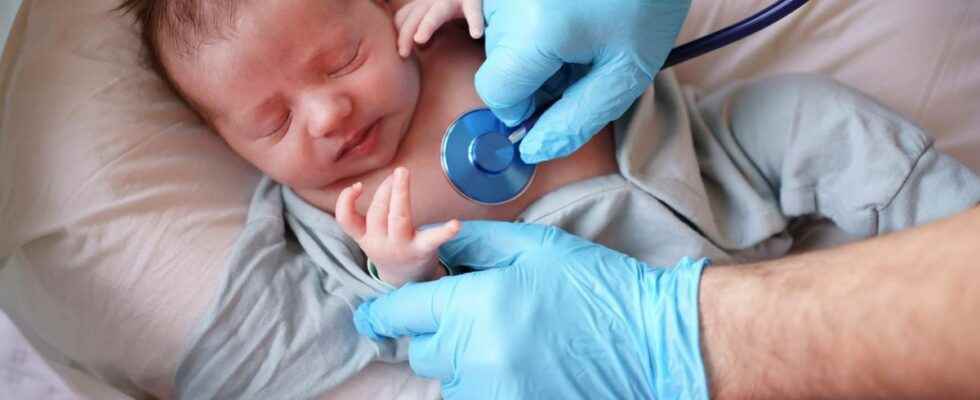Published on
Updated
Reading 2 mins.
The story took place two years ago in Great Britain. A heart surgeon at Bristol Royal Hospital for Children performed a placental stem cell transplant in a child with a heart defect. The child is doing well today, the surgeon thinks he “saved his life”. The opinion of Dr. Mounir Ouadahi, head of clinic in cardiology at the Hôtel-Dieu, in Paris.
Massimo Caputo, professor of cardiac surgery at the Bristol Heart Institute, believes that he is behind a world first. He saved the life of little Finley, born with a heart defect, by transplanting stem cells from his placenta.
Congenital heart defect operated on
Finley was born two years ago. The boy was born with a congenital heart defect: his main vessels are in the wrong direction. His days are endangered. Barely four days old, he underwent a first open-heart operation at the Bristol Royal Hospital for Children.
“The child was operated on at birth for what is called complex transposition of the great vessels (TGV) because associated with another malformation, he was still operated on because it is the reference treatment for this malformation , this is only carried out in expert centers“explains Dr. Mounir Ouadahi, head of clinic in cardiology at the Hôtel-Dieu, in Paris.
Unfortunately, surgery does not solve the problems of the child whose condition worsens. Indeed, his cardiac function has deteriorated considerably and the left side of his heart suffers from a severe lack of blood circulation.
Several weeks of intensive care
After several weeks in intensive care, Finley still depends heavily on medication to live. Professor Caputo then tries a new operation: injecting stem cells directly into Finley’s heart in the hope that they would help the damaged blood vessels grow.
These so-called “allogeneic” cells were grown by scientists at the Royal Free Hospital in London, and millions of them were injected into the boy’s heart muscle. Allogeneic cells have the ability to grow into tissues. They regenerated the child’s damaged heart muscle. “We weaned him off all the meds he was on, we weaned him off the vent“, says Professor Caputo.”He was discharged from the Intensive Care Unit and is now a happy little boy growing up.”
A “promising therapy” for Dr Mounir Ouadahi
“In the case of this child, the postoperative consequences of the first operation were complicated by refractory cardiorespiratory insufficiency. The regeneration of heart cells thanks to this cell therapy undoubtedly played a major role in the recovery of correct cardiac function. and two-year survival says the cardiologist.
“The mortality in the transposition of the great vessels is about 5% in the simple forms, probably more in the complex forms. It necessarily requires corrective surgery. As for the stem cell transplant technique, it is a therapy very promising in the event of post-operative complications. It offers great hope for reducing morbidity and mortality in corrected transpositions of large vessels. Moreover, trials are in progress in dilated cardiomyopathy and myocardial infarction in adult” concludes the specialist.
